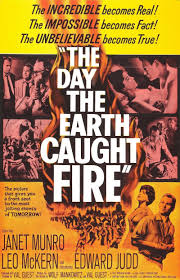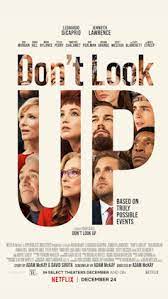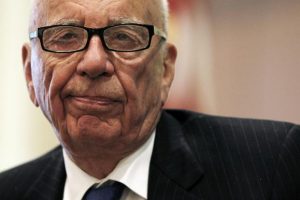
From pixabay.com / © clecaux
It’s been two weeks since Donald Trump’s inauguration as 47th president of the United States. For the 49.8 percent of Americans who voted in November 2024’s presidential election and voted for him, his previous four-year stint as 45th president obviously wasn’t enough.
Already those two weeks feel like two decades. I live in Singapore, a long way away from Trump’s USA, and yet his orange visage assails me non-stop, smirking and scowling out of photos in the news websites and social media accounts I peruse. I feel sorry for the poor folk who can’t stand the sight of him but have to live within the same country-borders as him.
It’s been relentless. One moment he’s pardoning the 1600-odd dingbats who attacked the US Capitol on January 6th, 2021, including 600 who were charged with attacking or impeding law-enforcement officers, and including the lunatic shaman-guy in the buffalo horns who reacted to his pardon by posting on Twitter, “Now I am gonna by some motha f**kin guns!” The next moment he’s pulling the USA out of the Paris climate agreement (again) and halting Joe Biden’s Green New Deal – much to the delight, I’m sure, of the Chinese government, whom he blames for pushing the ‘hoax’ of man-made climate change. They’ll now seize the opportunity to establish their country as the world’s renewable-energy superpower.
And the next moment again he’s halting all American foreign aid, giving Elon Musk’s ‘Department of Governmental Efficiency’ (DOGE) free rein to destroy the US Agency for International Development (USAID), or as Musk calls it, ‘a viper’s nest of radical left-Marxists who hate America’. Again, I’m sure the Chinese government is cheering. As the US’s disease-prevention, food security, water security, education, etc., programmes in the Global South and elsewhere grind to a halt, they’ll swoop in and replace them, thus greatly extending China’s global soft power and influence.
What else? Trump’s pulled the US out of the World Health Organisation (WHO) – obviously, when there’s a deadly global pandemic, he doesn’t want medical experts interfering in how he runs his country and warning him that his proposed ‘inject yourself with bleach’ cure isn’t a good idea. He’s banned all Diversity, Equity and Inclusion (DEI) programmes in the belief that important jobs must be left to straight, fully-abled white men, who are inherently smarter than everyone else. Why, even before the bodies of those killed in January 29th’s mid-air collision at Washington DC were cold, Trump raged that DEI policies were responsible for the tragedy.
He’s renamed the Gulf of Mexico ‘the Gulf of America’. (What next? One wag speculated on social media that he might rename the Oxford comma ‘the Comma of America’.) He’s tried to bully Denmark into handing over Greenland to him, as part of his expand-the-American-Empire project (no doubt inspired by his buddy Putin’s expand-the-Russian-Empire project). And he’s also tried to bully Mexico and Canada, by threatening to slap tariffs on their goods. I’m not a big fan of Pierre Trudeau, but his riposte to Trump’s blustering bollocks showed he has more class and statesmanship in the tip of his little finger than Trump has in his whole, gross body.

From pixabay.com / © StockSnap
However, I’m sure that for tens of millions of Trump’s supporters, this is music to their ears. They must feel like they’re in heaven. Thanks to the antics of their orange hero, they’re now owning the libtards. They’re bathing in libtard tears. They’re loving the smell of napalmed libtards in the morning. They’re achieving their number-one objective, which is to cause maximum distress to those libtard snowflakes who want to deny them their constitutional right to stockpile huge quantities of military assault rifles, and their right to go ‘rolling coal’ in their modified diesel-engine trucks, and their right to grab women by the pussy without suffering consequences, and their right to live in neighbourhoods with zero numbers of people of colour, and so on. They’re all on Twitter, or ‘X’ as Musk insists on calling it, yeehawing their joy in their echo-chambers of MAGA-ites, incels, neo-Nazis and Russian bots at how President Trump is blasting those libtard wusses with both barrels.
Well, to the vast majority of Trump’s supporters – i.e., those not rich enough to qualify as being in the top 10 percent who own half the nation’s wealth – I have some bad news. You won’t ever be happy.
Firstly, your lives aren’t going to improve materially. The involvement in Trump’s project of Elon Musk, who’s the world’s richest human being and whose right arm had a Dr Strangelove-style tendency to slip into troubling, sloping salutes at the inauguration, should be a warning of that. So too should the prominent places given at that inauguration to Jeff Bezos and Mark Zuckerberg. Big tax-cuts are coming for Trump’s wealthy and super-wealthy friends. A large part of the bill for those will be shifted onto the working and middle-classes, for example, through the extra they’ll have to pay for goods when Trump starts imposing his beloved tariffs.
Some of these tax-cuts will also be financed through the axing of government services, which Musk is doing in his new, DOGE-eat-dog world right now. There’s always much whinging about how much is removed from your pay-packet and sent off to fund distant government departments. But when departments overseeing such things as social security, medical care, education, tax refunds, disease control, environmental protection, disaster relief and so on receive the chop, and the effects of their loss are felt, I suspect people’s tunes will change.
Incidentally, it’s ironic that far-right-wing commentators, influencers and social-media grifters have for years belched out claims that the world’s governments are secretly controlled by liberal-minded billionaires like Bill Gates or George Soros. They’ve also indulged in antisemitic dog-whistling by suggesting that billionaire banking family the Rothschilds are pulling the levers. (See, for instance, a 2023 complaint by the Board of Deputies of British Jews to GB News about their presenter and conspiracy fantasist Neil Oliver referencing the antisemitic, Rothschild-accusing document Silent Weapons for Silent Wars during one of his diatribes about impending ‘one-world government’.) Yet here we have a billionaire who, unelected and in plain sight, is heavily financing, influencing and manipulating an elected government for his own benefit. And there’s not a peep out of them.

From unsplash.com / © Larissa Avononmadegbe
Musk has even got access to classified US treasury files, which are full of confidential data about citizens’ social security and Medicare payment systems. You’d think this violation of people’s private information would give right-wing conspiracy nuts the heebie-geebies. But no, they’ve been strangely quiet. Maybe Musk’s salute at the inauguration did it. He showed these guys that they didn’t have to worry – he’s the type of billionaire they’d want to have controlling their government.
But returning to Trump, I don’t see how his antics are going to improve life for the average citizen who voted for him. If he carries out his witless threats to impose tariffs, he’ll drive up prices. Meanwhile, his belief that, conveniently, climate change is just a sham will no doubt see the American economy take a severe battering in the years ahead as the country itself takes a battering from increasingly inclement weather. Imagine what home-insurance bills will be like after a good chunk of Florida tips into the Atlantic Ocean.
Not that I think his supporters will be loudly belly-aching about their lives continuing to be shit, or being even shitter than they were previously. A lot of them will be conditioned by sunk-cost fallacy and keep quiet – having invested so much time and energy in backing Trump and his MAGA movement, they’ll be reluctant to admit they were wrong. Also, Trump now has X, Facebook, Instagram, Threads and, most recently, Tik Tok singing his praises. He also has newspapers like Jeff Bezos’s Washington Post and Patrick Soon-Shiong’s Los Angeles Times kowtowing and kissing his ring. The bulk of the American media will spend the next four years assuring the public they’ve never had it so good, when in all probability they’ve never had it so bad.
And that’s not all, Trump supporters. Even in the unlikely case of your circumstances getting better, you still won’t ever be happy. Trump and his lackeys won’t allow you to be happy. To illustrate what I mean, you only have to look at Britain and the nearest institution Britain has to Trumpism – that toxic far-right-wing newspaper the Daily Mail. Paul Dacre, its former editor and now the editor-in-chief of its publisher DMG Media, once remarked that the perfect Daily Mail story was one that (1) confirmed its readers’ worst fears and (2) gave them someone to blame for it. You can expect something similar in the US over the next few years. (Maybe forever, if Trump can change the constitution so that it resembles that of Putin’s Russia, and politicians who might oppose him in future elections start falling to their deaths out of windows.)
Everything that goes wrong will be the fault of immigrants eating people’s pets, or environmentalists not pumping enough water to put out wildfires, or Democrats controlling the weather, or Jewish space-lasers, or deadly aircraft-destroying DEI programmes. Even when things aren’t going wrong, Trump will still dial up the panic, make it look like crises are happening, and blame immigrants, liberals, working mothers, people of colour, etc. That’s because he can’t afford to let his base relax and simply get on with their lives. To ensure their ongoing support, he has to keep them in a constant state of anxiety and in constant readiness to lash out about it. They’re to be riled up, permanently.
So, Trump people, I’m sorry, but you won’t ever be happy. As someone once put it: “Hell is getting what you think it is you want.”

From pixabay.com / © heblo













